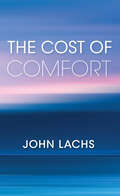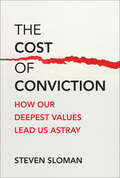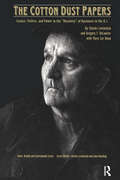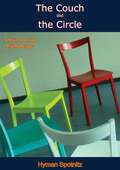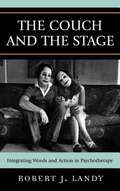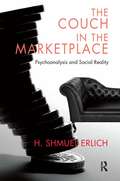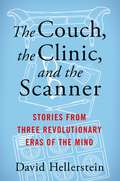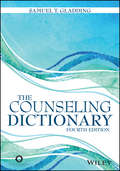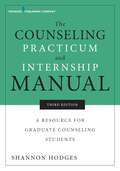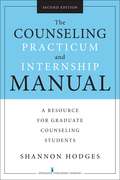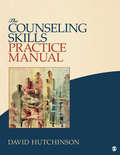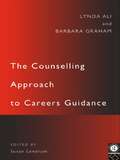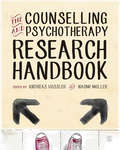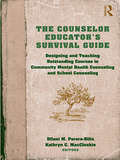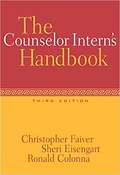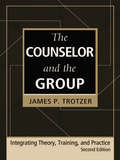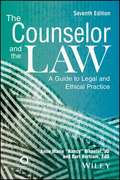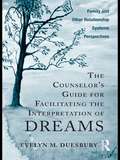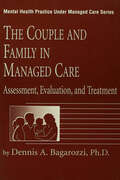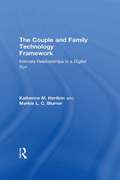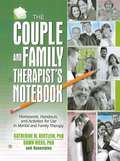- Table View
- List View
The Cost of Comfort (American Philosophy)
by John LachsWhy do we feel empty when our lives seem so full? A philosopher&’s &“clear, engaging reflection&” on the psychic risks of today&’s world (John T. Lysaker, author of After Emerson). While comfort has not always reached everyone evenly, most of us who live in the United States today reap the benefits of modern life. We live longer, we eat better food, we have access to good medical care, and we can stay in touch with loved ones who are far away. Yet, as philosopher John Lachs observes, these comfortable lives come at a cost: our increasing unhappiness. Irresponsible behavior, including by those in positions of power in governments and corporations, only increases and multiplies feelings of bitterness and disaffection. In this book, Lachs argues that this dizzyingly complex world often inspires isolation, and that deeper engagement with it is required in order to dispel our growing psychic distance. Lachs advocates for mediation and champions education, advertising, openness, and transparency to help individuals understand the roles they play in society and to nullify claims to blamelessness. Lachs suggests new rules for responsibility and argues that examining and understanding the consequences of one&’s actions is imperative to overcoming the ills and problems of the modern world—and to find the fulfillment we seek. &“A very clear, engaging reflection on a genuine contemporary issue: deep feelings of disengagement and bewilderment about how to live responsibly in an almost overwhelmingly complex world.&” —John T. Lysaker, author of After Emerson
The Cost of Conviction: How Our Deepest Values Lead Us Astray
by Steven SlomanA timely and important perspective on how people frame decisions and how relying on sacred values unwittingly leads to social polarization.When you are faced with a decision, do you consider the best outcome, or do you consider your deepest values about which actions are appropriate? The Cost of Conviction contrasts these two primary strategies for making decisions: consequentialism or prioritizing one&’s sacred values. Steven Sloman argues that, while both modes of decision making are necessary tools for a good decision maker, people err by deploying sacred values more often than they should, especially when it comes to sociopolitical issues. As a result, we oversimplify, grow disgusted and angry, and act in ways that contribute to social polarization. In this book, Sloman provides a new understanding of today&’s societal ills and grounds that understanding in science.Drawing on historical and current examples of the two decision-making strategies in action, the author provides a thorough overview of the psychology of decision making, including work on judgment, conscious and unconscious decision-making processes, the roles of emotion, and even an analysis of habit and addiction. With its unique emphasis on sacred values, The Cost of Conviction is an eye-opening must-read for all decision makers, especially those who wish to understand judgment, social decision making, and leadership.
The Cotton Dust Papers: Science, Politics, and Power in the "Discovery" of Byssinosis in the U.S (Work, Health and Environment Series)
by Charles Levenstein Gregory F. Delaurier Mary Lee Dunn"The Cotton Dust Papers" is the story of the 50-year struggle for recognition in the U.S. of this pernicious occupational disease. The authors contend that byssinosis could have and should have been recognized much sooner, as a great deal was known about the disease as early as the 1930s. Using mostly primary sources, the authors explore three instances from the 1930s to the 1960s in which evidence suggested the existence of brown lung in the mills, yet nothing was done. What the story of byssinosis makes clear is that the economic and political power of private owners and managers can hinder and shape the work of health investigators.
The Couch and the Circle: A Story of Group Psychotherapy
by Hyman SpotnitzThe subject of THE COUCH AND THE CIRCLE is the Third Psychiatric Revolution, or Group Therapy. Once looked down upon by orthodox psychiatrists, group therapy has recently become the founding work for encounter groups, marathon sessions and sensitivity training. In this book. Dr. Hyman Spotnitz deftly sketches and elucidates all of its varied methods—analytic therapy, psycho-drama, family counselling, non-directive counselling and activity therapy. He writes in intimate detail about one of his groups—its dramas, taboos and troubles, its sudden revelations and meaningful silences, its moments of love and raging hate, and its triumphs when individuals find themselves ready to leave.“… an authority on group psychotherapy, writes simply and clearly. The result is a frank, easily understandable account…”—NEW YORK TIMES“Highly readable and readily understandable. Recommended…”—LIBRARY JOURNAL“…an excellent demonstration of the therapeutic technique…”—KIRKUS REVIEW
The Couch and the Silver Screen: Psychoanalytic Reflections on European Cinema (The New Library of Psychoanalysis #Vol. 44)
by Andrea SabbadiniThe Couch and the Silver Screen is a collection of original contributions which explore European cinema from psychoanalytic perspectives. Both classic and contemporary films are presented and analysed by a variety of authors, including leading cinema historians and theorists, psychoanalysts with a specific expertise in the interpretation of films, as well as the filmmakers themselves. This composite approach offers a fascinating insight into the world of cinema. The Couch and the Silver Screen is illustrated with stills throughout and Andrea Sabbadini's introduction provides a theoretical and historical context for the current state of psychoanalytic studies of films. The book is organised into four clear sections - Set and Stage, Working Through Trauma, Horror Perspectives and Documenting Internal Worlds - which form the basis for engaging chapters including: easily readable and jargon-free film reviews. essays on specific subjects such as perspectives on the horror film genre and adolescent development. transcripts of live debates among film directors including Bernardo Bertolucci, actors, critics and psychoanalysts discussing films. The cultural richness of the material presented, combined with the originality of multidisciplinary dialogues on European cinema, makes this book appealing not only to film buffs, but also to professionals, academics and students interested in the application of psychoanalytic ideas to the arts.
The Couch and the Stage: Integrating Words and Action in Psychotherapy
by Robert J. LandyThis book is intended to explore how action approaches to psychotherapy grew out of Western verbal methods and even traditional shamanic practices, eventually coalescing into a theory and practice that is creative and holistic. As the central concept in the book, action refers to the therapeutic application of drama, play and non-verbal expression in the service of engaging the body, mind and emotions of clients in a process of healing. The action psychotherapies featured in the book primarily include Gestalt therapy, psychodrama, and drama therapy, although the focus will be upon the latter two. The main purpose of this book is to make a case for the inclusion of the action psychotherapies into the mainstream of psychotherapy, mental health counseling and clinical social work. This perspective is well supported by the addition of action psychotherapies within recent mainstream anthologies in play therapy, counseling and psychotherapy, and by current research in neuroscience, pointing to the holistic nature of the brain and its dramatic networks, such as the mirror neurons. Action approaches will be seen as especially valuable for mental health professionals who conceive of their work within a holistic, creative and relational framework.
The Couch in the Marketplace: Psychoanalysis And Social Reality
by H. Shmuel ErlichThe book bridges the conceptual and practical gap between a psychoanalytic focus on the internal world and the dynamics of external reality by examining an array of junctures in which the two perspectives combine to enrich each other. Starting from the inherent bias of the psychoanalytic immersion in working with the internal world, the book deals with a wide array of phenomena in which a binocular perspective is potentially contributing. One such bridge is exemplified by the Group Relations approach, which richly combines psychoanalytic insights with systemic ones. This unique merger is valuable in studying a variety of phenomena both within psychoanalysis and outside it. The work of the analyst in the psychoanalytic setting implies situating oneself on several boundaries - internal and external, love and admiration as well as death and destructive impulses - and the courage and sacrifice demanded by taking up this role. This binocular perspective has significant implications for the formation and maintenance of identity and particularly for the psychoanalytic identity.
The Couch, the Clinic, and the Scanner: Stories from Three Revolutionary Eras of the Mind
by David HellersteinOver the past several decades, psychiatry has undergone radical changes. After its midcentury heyday, psychoanalysis gave way to a worldview guided by the Diagnostic and Statistical Manual, which precisely defined mental disorders and their treatments; more recently, this too has been displaced by a model inspired by neuroscience. Each of these three dominant models overturned the previous era’s assumptions, methods, treatment options, and goals. Each has its own definitions of health and disease, its own concepts of the mind. And each has offered clinicians and patients new possibilities as well as pitfalls.The Couch, the Clinic, and the Scanner is an insightful first-person account of psychiatry’s evolution. David Hellerstein—a psychiatrist who has practiced in New York City since the early 1980s, working with patients, doing research, and helping run clinics and hospitals—provides a window into how the profession has transformed. In vivid stories and essays, he explores the lived experience of psychiatric work and the daunting challenges of healing the mind amid ever-changing theoretical models. Recounting his intellectual, clinical, and personal adventures, Hellerstein finds unexpected poetry in hallways and waiting rooms; encounters with patients who are by turns baffling, frustrating, and inspiring; and the advances of science. Drawing on narrative-medicine approaches, The Couch, the Clinic, and the Scanner offers a perceptive and eloquent portrayal of the practice of psychiatry as it has struggled to define and redefine itself.
The Counseling Approach to Careers Guidance
by Lynda Ali Barbara Graham Susan LendrumFrom The Book Jacket The Counselling Approach to Careers Guidance offers a structured model which can be adapted to meet the specific needs of each client. Through detailed case material Lynda All and Barbara Graham show how to use counselling strategies with clients to enable them to change unhelpful patterns of thought and to move towards achievable goals. The book also explores materials available to careers counsellors and discusses important issues affecting their training and development within the public sector. This will be a useful handbook for experienced advisers and trainees in the careers service and a range of professional settings. Lynda All is Senior Careers Adviser, Edinburgh University. Barbara Graham is Director of the Careers Service, University of Strathclyde. Susan Lendrum is author of Gift of Tears and Case Material and Role Play in Counselling Training and a counsellor in private practice, Manchester. CAREERS GUIDANCE/COUNSELLING
The Counseling Dictionary: Concise Definitions Of Frequently Used Terms
by Samuel T. GladdingThis authoritative reference book by one of the most distinguished leaders in the profession features 4,000 commonly used terms and abbreviations in counseling. Since publication of the previous edition, Dr. Samuel Gladding has added 342 new, clear, and concise definitions and has fully updated existing terminology. This exceptional resource also highlights the professional contributions of prominent counselors, both historical and contemporary, and includes a current chronology of the evolution of counseling. In addition, it provides comprehensive contact information for self-help groups and nationally prominent helping organizations. Frequent cross-referencing of terms enhances the reader’s understanding of more complex principles. Requests for digital versions from the ACA can be found on wiley.com To request print copies, please visit the ACA website here Reproduction requests for material from books published by ACA should be directed to permissions@counseling.org
The Counseling Practicum and Internship Manual: A Resource for Graduate Counseling Students
by Shannon HodgesThis best-selling guide to the practicum and internship experience, written expressly for graduate counseling students by a seasoned counselor and educator, is now substantially revised. New and expanded content touches on CACREP developments, trauma-informed care, social media, mindfulness, multicultural competencies, and more. With a strong focus on counseling as a specific professional identity, the book helps graduate students and new counselors develop their own approach to counseling and supervision, maintaining beneficial working relationships, self-care, sharpening writing skills, and record-keeping. A completely new chapter focuses on trauma-informed care developed from evidence-based approaches.
The Counseling Practicum and Internship Manual: A Resource for Graduate Counseling Students, Second Edition
by Shannon HodgesThis best-selling guide to the practicum and internship experience, written expressly for graduate counseling students by a seasoned counselor and educator, is now substantially revised with updated and expanded content including the 2014 ACA Code of Ethics.
The Counseling Skills Practice Manual
by David R. HutchinsonThe Counseling Skills Practice Manual is a practical guide for students who are working on improving their counseling skills. Designed as a companion to The Essential Counselor and its accompanying DVD of professionally demonstrated skills, this manual works directly with the student, offering a discussion of each skill set along with examples and practice exercises. The manual features 12 practice sessions, each of which focuses on a specific counseling skill set. Many of the essential skills are covered, such as using questions, nonverbal behaviors, making reflections of client meaning, and feeling. But the student also gains practice here with other important skills, such as learning how to deal with clients in crisis and reluctant clients, how to appropriately confront, and how to give and receive accurate and supportive feedback to one another. These practice sessions are designed to help the students recognize and build upon their natural interpersonal skill set as they learn new skills. They will help students become more competent in their use of counseling skills and feel more comfortable and confident in their roles as emerging counseling professionals.
The Counselling Approach to Careers Guidance
by Lynda Ali Barbara GrahamThrough detailed case material the authors show how to use counselling strategies with clients seeking careers guidance to enable them to change unhelpful patterns of thought and to move towards achievable goals. This book: * offers a series of tasks for structuring interviews and assesses materials available to careers counsellors * discusses important issues affecting their training and development within the public sector. This is a useful handbook for experienced advisers and trainees in the careers service and a range of professional settings.
The Counselling and Psychotherapy Research Handbook: A Guide For Counsellors And Psychotherapists
by Naomi Moller Andreas VosslerResearch is a vital and often daunting component of many counselling and psychotherapy courses. As well as completing their own research projects, trainees across modalities must understand the research in the field – what it tells them and how to do it. Breaking down this seemingly mountainous task into easy to swallow pieces, this book will navigate your students through each stage of the research process, from choosing a research question, through the pros and cons of different methods, to data analysis and writing up their findings. Written by leading contributors from the field including John McLeod, Mick Cooper and Tim Bond, each chapter features points for reflection, engaging activities and suggestions for further reading, helping students to engage with all aspects of research. An original graphic narrative runs throughout the book, bringing this complex topic to life in a unique way. Whether embarking on research for the first time or already a little familiar with research and research methods, this unique guide is something counselling and psychotherapy students will turn to continually throughout their research projects.
The Counselor Educator’s Survival Guide: Designing and Teaching Outstanding Courses in Community Mental Health Counseling and School Counseling
by Kathryn C. MacCluskie Dilani M. Perera-DiltzFirst Published in 2010. Routledge is an imprint of Taylor & Francis, an informa company.
The Counselor Intern's Handbook
by Christopher Faiver Sheri P. Eisengart Ronald Colonna Christopher M. Faiver Sheri EisengartThis practical and succinct book guides students through each stage of the often-complicated internship process, offering resources that will prove valuable even after their internships are complete. The text is built on the experience of three established authors known in their fields: Chris Faiver, a supervisor to students in the field for over 25 years; Sheri Eisengart, a clinician, researcher, and former student of Faiver; and Ronald Colonna, a professional and administrator from an agency that frequently serves as a placement site for interns. Because the text can be used from state to state, it also serves as a perfect study guide for certification and state and national licensure examinations.
The Counselor and the Group, fourth edition: Integrating Theory, Training, and Practice
by James P. TrotzerThis new, more streamlined version of the 1999 third edition brings the existing materials and references up to date and omits information now readily available online and elsewhere. The updated material in The Counselor and the Group makes this book an excellent resource for those who are both learning and practicing by providing a structured problem-solving approach to group work. Trotzer provides process and practice guidelines and techniques that enable group leaders to function effectively across the broad range of groups that counselors conduct including counseling, therapy, psychoeducational, and task groups. Includes material by noted group experts Lynn Rapin and Robert Conyne on "Best Practices in Group Counseling" Niloufer Merchant on Multicultural Counseling Rex Stockton, Paul Toth and D. Keith Morran on "The Case for Group Research."
The Counselor and the Law: A Guide to Legal and Ethical Practice (6th Edition)
by Anne Marie Wheeler Burt BertramAttorney Wheeler, who has experience with counselors and the mental health field, and Bertram, a counselor, marriage and family therapist, and counselor educator, help counselors and other mental health professionals understand the legal and ethical dilemmas that can arise in practice. They overview the counseling profession, counseling relationship, and law and ethics, and discuss federal and state laws; civil malpractice liability and licensure board complaints; confidentiality, privilege, and privacy; duties to report, warn, or protect; suicide and threats of harm to self; professional boundaries; records and documentation; and managing the counseling practice. This edition has a new chapter on the use of social media and other Internet-related issues, updates to the Health Insurance Portability and Accountability Act (HIPAA) through the Health Information Technology for Economic and Clinical Health (HITECH) Act and regulations, a new legal/ethical decision-making model, and discussion of legal risks for counselor educators, such as recent court cases involving students' work with lesbian, gay, bisexual, and transgender clients.
The Counselor and the Law: A Guide to Legal and Ethical Practice (Seventh Edition)
by Anne Marie Wheeler Burt BertramIn this seventh edition of The Counselor and the Law, each chapter has been updated to reflect changes in the 2014 ACA Code of Ethics, findings of recent court cases, and new federal and state legislation. Attorney Nancy Wheeler and Burt Bertram, a private practitioner and counselor educator, provide a comprehensive overview of the law as it pertains to counseling practice; an in-depth look at counselors legal and ethical responsibilities; and an array of risk management strategies. Written in a clear and engaging style, this text is not only a widely used and respected resource for students, it also provides real answers for clinicians who are challenged daily to act in the best interest of their clients while minimizing the chances of becoming involved in an ethical or legal complaint. The issues surrounding civil malpractice liability, licensure board complaints, confidentiality, duty to warn, suicide and threats of harm to self, professional boundaries, records and documentation, and managing a counseling practice are addressed in detail.
The Counselor's Guide for Facilitating the Interpretation of Dreams: Family and Other Relationship Systems Perspectives
by Evelyn M. DuesburyFor both students and practicing counselors, this book fills the gaps that exist between many current academic programs and practitioner’s needs for focused training on how to better assist clients with dream interpretations. Its main focus is on dreams concerning family members and other major figures in the dreamer's life with whom he or she interacts. Readers will first learn how to understand and use their own dreams, and then how to apply this in order to facilitate their clients’ interpretations of dreams. They will be amazed and fascinated by the issues, emotions, and problem-solving suggestions that are often revealed as they guide their clients' use of a personalized dream interpretation method developed by the author. Through the use of a detailed case example of a client and her dreams, the author shows how each step of this method can be applied and carried out in practice and is easily integrated with contemporary psychotherapies, especially cognitive behavior therapies.
The Couple
by Alfred Palca Monte GhertlerA husband and wife's utterly frank account of their experience in the Masters & Johnson sex clinic.
The Couple And Family In Managed Care: Assessment, Evaluation And Treatment
by Dennis BagarozziPublished in 1996, The Couple And Family In Managed Care is a valuable contribution to the field of Familey Therapy.
The Couple and Family Technology Framework: Intimate Relationships in a Digital Age
by Katherine M. Hertlein Markie L. BlumerCouples and families worldwide have a constant electronic connection to others, a fact that is influencing the concerns and issues they bring to therapy. The authors of this resource help mental health practitioners to better deal with concerns such as online infidelity, online dating, internet addictions, cyber bulling, and many more by introducing the Couple and Family Technology (CFT) framework, a multi-theoretical approach that doesn’t require clinicians to change their preferred clinical approach. The CFT framework acknowledges the ways in which couples navigate their relationship with technology and a partner simultaneously, and it attends to, and in some cases incorporates the role of technology in therapeutic ways. Included in the authors’ discussion of how different technologies affect relationships is • a survey of what individuals’ motivations of usage are • an examination of the specific issues that emerge in treatment• a study of the risks particularly relevant to intimate relationships, and• an introduction of the first-ever technology-based genogram. They also examine technological usage across different developmental points in a couple’s lifespan, with attention given throughout to people from various cultural backgrounds. Along with the CFT framework, the authors also introduce a new discipline of family research: Couple and Family Technology. This discipline integrates three broad perspectives in family science and helps therapists maintain a systemic focus in assessing and treating couples where issues of the Internet and new media are problematic. Online resources can be accessed by purchasers of the book and include videos, additional case studies, glossary, and forms.
The Couple and Family Therapist's Notebook: Homework, Handouts, and Activities for Use in Marital and Family Therapy
by Dawn Viers Katherine M. HertleinGet a "sneak peek" at clinical vignettes that demonstrate the power of creative interventions! Couples and families present unique challenges in therapy, and other books rarely illustrate the effectiveness of particular types of interventions on actual cases. The Couple and Family Therapist's Notebook provides clinicians with a wide range of practical field-tested therapy activities and homework that are solidly grounded to each intervention&’s theoretical underpinning, then explores their effectiveness by briefly relating real-life cases. Continuing The Haworth Press Therapist&’s Notebook series, respected experts detail how to perform several creative interventions and then follow with insightful clinical vignettes to illustrate under what specific circumstances each particular approach is effective.Each chapter of The Couple and Family Therapist's Notebook: Homework, Handouts, and Activities for Use in Marital and Family Therapy has an objective statement to orient the reader to the homework, handout, or activity, followed by a rationale. Instructions explain how to perform the activity, followed by clinical case vignette, a section of contraindications, and a list of useful resources for both the practitioner and the client. Illustrations and appendixes also provide helpful guides for the therapist.The Couple and Family Therapist's Notebook: Homework, Handouts, and Activities for Use in Marital and Family Therapy gives you the tools for approaches such as: emotionally focused therapy symbolic-experiential therapy transgenerational theory solution-focused therapy experiential therapy and many othersAnd some of the intervention techniques that are illustrated: the Metaphor of Gardens the Coming Clean Ritual creating rituals for couples coping with early pregnancy loss the Four C&’s of Parenting identifying family rules the Systemic Kvebaek Technique physical acting techniques the Feelings Game writing to combat adolescent silence in family therapy Family Stress Balls the Goodbye Book the "Puppet Reflecting Team" Technique family-based school interventions and many moreThe Couple and Family Therapist's Notebook: Homework, Handouts, and Activities for Use in Marital and Family Therapy provides invaluable insight and vital clinical tools for creative couple and family intervention, perfect for adaptation by counselors, psychotherapists, practitioners in private practice, school systems, hospitals, government settings, homeless shelters, and not-for-profit agencies and counseling centers.
